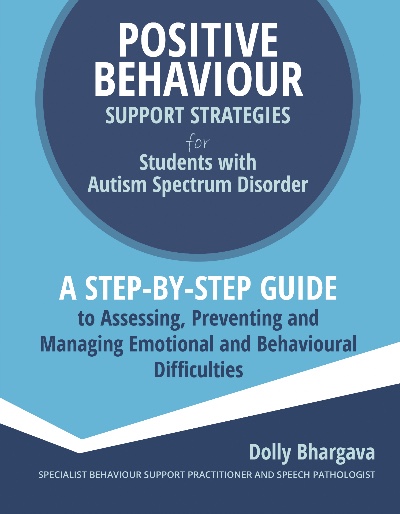Supporting Autistic Young People with Positive Behaviour Support
This online course is designed for parents, teachers, mental health, allied-health and behaviour support practitioners who want to deepen their knowledge and confidently support autistic children and adolescents. It provides a clear, strengths-based understanding of autism spectrum conditions and how to create environments where autistic individuals can thrive.
Using the Positive Behaviour Support (PBS) framework, the course explores practical communication strategies, proactive guidance and supportive approaches relevant across education, social settings, home and everyday life.
Positive Behaviour Support advocates for a person-centred approach that is respectful and empowering — and this autism training course is no different. We believe autistic individuals deserve supportive environments, meaningful opportunities and the chance to live healthy, fulfilling lives with the same access, inclusion and dignity as their neurotypical peers.
Understanding Autism and Behaviours of Concern
Behaviours of concern (BoC) are actions that may place an autistic child or other's personal safety at risk of harm, interfere with participation or learning, or affect the child’s overall wellbeing. These behaviours are not intentional “misconduct” but communication signals that something in the child’s world is overwhelming, unclear, unpredictable or unmet. For autistic children, BoC often arise when they do not yet have the language, regulation, or problem-solving skills to express their needs in more conventional ways.
Autism is a neurodevelopmental condition that reflects differences in brain development and wiring. These differences influence how an individual processes information, interprets social cues and responds to the sensory and physical environment (key features of Autism). Such variations can significantly shape how an autistic child experiences communication demands, transitions, sensory input, or unexpected changes. When environmental expectations do not match a child’s needs — especially when sensory stimulation is too intense, confusing or unpredictable — the likelihood of distress and behaviours of concern naturally increases.
Common autistic traits such as sensory sensitivities, strong preferences for predictability, differences in flexible thinking, or challenges processing verbal instructions can influence a child’s moment-to-moment experiences. For example, loud noises, bright lights or crowded classrooms may overwhelm a child’s sensory system, leading to behaviours like withdrawing, covering ears, attempting to escape, or expressing distress through shouting, crying or aggression. Similarly, differences in social communication may make it harder for a child to ask for help, explain discomfort, or navigate complex group situations. Different stimulation will effect different autism spectrum conditions differently!
Understanding these underlying factors is essential for effective support. A core principle of Positive Behaviour Support (PBS) is recognising that the behaviour is not the problem — it is a signal that something in the environment, task, communication, or expectations needs adjusting.
This is where reasonable adjustments become critical. By adapting the physical environment, modifying communication methods, providing visual supports, adjusting tasks, chunking instructions, or offering regulation breaks, we reduce distress and increase a child’s sense of safety, predictability and participation.
Reasonable adjustments also ensure equitable access to learning, relationships and community experiences. When we consider an individual’s sensory profile, communication preferences and emotional needs, we can design supports that enhance comfort, confidence and wellbeing.
Ultimately, understanding autism and Behaviours of Concern requires a shift in perspective:
instead of aiming to “fix” the behaviour, we focus on meeting needs, reducing triggers and building supportive contexts. This compassionate, proactive approach is at the heart of Positive Behaviour Support — enabling autistic children to engage, learn and thrive in ways that honour their neurotype across all autistic spectrum conditions.
Understanding Ways to Manage Behaviours of Concern Through Training
This course is designed to equip you with both the theoretical understanding and practical tools needed to respond to behaviours of concern in a thoughtful, evidence-based and compassionate way that supports individuals. You will gain knowledge of key concepts — including neurological differences in autistic people, sensory processing, environmental influences, emotional regulation and person-centred support — are woven throughout each module, guiding you step-by-step through the Positive Behaviour Support (PBS) framework. However, the course will not allow you to make a professional diagnosis.
By grounding the training delivery in a deep understanding of autism and the factors that shape behaviour, you’ll be able to apply PBS strategies with confidence and clarity. Whether you are a parent, educator or allied-health professional, you will find this guidance relevant in helping you create meaningful, sustainable change and support autistic children in developing the regulation, participation, relationships and wellbeing they deserve — without asking them to be anyone other than who they are.


